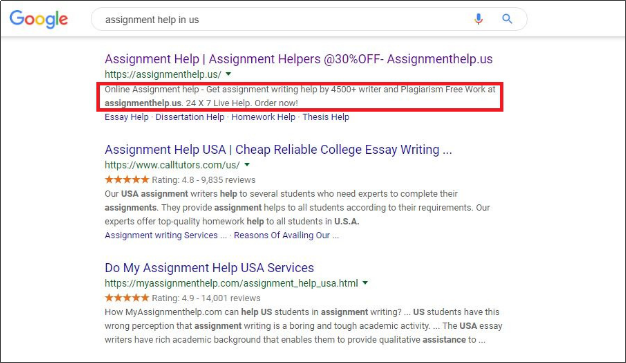In an era marked by rapid digitalization, everyone is eyeing for the no.1 rank in Google’s search results. Their desperation is quite similar to that of the people who aim for the iron throne in “Game of Thrones.” And since Google keeps on updating its algorithm all the time, you never know what is going to happen to your webpage’s ranking the next day.
To comply with the ever-changing SEO requirements and improve your ranking on Google’s SERPs, you need to focus on important on-page SEO factors in 2019. Before we get into the details, let us learn all about the importance of SEO.
What Is On-Page SEO?
On-page SEO refers to the practice of optimizing web pages to boost search engine rankings and earn organic traffic. All SEO activities performed on a particular webpage, be it keyword insertion, optimizing headline, or making the page more responsive, everything is a part of on-page SEO.
Significance of On-Page SEO
On-page SEO helps the search engines (e.g. Google) understand the websites and its content. It determines whether a webpage is relevant to a user’s query. Nowadays, the search engines are prioritizing the web pages on their search engine results pages (SERPs) that meet the user intent as well as carry the keywords.
Understanding the latest developments in search engine requirements and adapting to the same is essential for the visibility of the web pages. With the latest on-page SEO practices, you can not only comply with the current search engine requirements but also boost the presence of your business and improve organic traffic.
Top 10 On-Page SEO Factors You Must Know
Today, I bring to you top 10 factors that can help you up your SEO game. Keep reading to gain relevant insights and give your business that much needed boost.
1.Focus on Expertise, Authoritativeness, and Trustworthiness
Google has always prioritized high-quality content. It makes sure that websites with high-quality content get rewarded with better rankings. If a website has low-quality content, it gets lesser visibility on searches.
Google raters use E-A-T (expertise, authoritativeness, and trustworthiness) framework to assess the webpages, content creator and websites. Apparently, E-A-T is playing a crucial role in the organic search results in Google. It will be a mistake to leave out E-A-T while developing your SEO strategy.
2.Optimize Title tags
The title tag or Meta title is practically an HTML tag that appears at the top section of the web page. These titles give the users a context or basic idea about the content written on the respective web page. If you search on Google using a particular keyword, the respective title tags of relevant web pages are featured in the SERPs.
Interestingly, these title tags don’t have much of a direct impact on organic rankings. And that’s the reason why a lot of people don’t put stress on this segment. That being said, poorly written Meta titles or duplicated title tags can have a negative impact on the on-page SEO. So, make sure to optimize the title tags of your web pages.
3.Compose stellar Meta descriptions
Like the title tags, Meta description of a web page is a part of the HTML code that appears in the search engine results pages along with the title tag of the respective web page. This element had the attention of the SEO practitioners from the very beginning. The primary function of this section is to give a brief description of the respective page.
The Meta description may not have any direct contribution to the on-page SEO or rankings. However, an optimized meta description allows you to improve the click-through rate (CTR). Since the searchers get to see only the metadata on the SERPs, the effectiveness of the meta description has a lot to do with organic traffic.
4.Write intriguing headlines
If you have followed any newspaper ever, you must have noticed that you tend to read those articles that have catchy or intriguing headlines. It’s the same with web page content. A headline can often be the difference between a click and an impression. So, if you want your webpage to get a higher number of clicks, you need to create the headlines more strategically.
Unless the headlines of your blogs don’t draw the attention of the users, they won’t be able to stand apart from the other results in the SERPs.
Moreover, if your headlines are not interesting enough, nobody is going to read the rest of the content.
5.Create catchy sub-headings
Sub-headings are great tools for enhancing the readability of the content of a web page. These are generally used to segment the entire content into smaller chunks, allowing the readers to skim through the page easily. However, this element does not have any contribution to the ranking of the page.
Then why are we discussing it?
Interestingly, these subheadings can add significant value to SEO. With proper use of keywords in the subheadings, it becomes easier for the search engines to identify what the content is all about. When a relevant keyword search is made, Google can enlist the page in the SERP.
6.Invest in SEO writing
Even though it is called SEO writing, you need to keep both search engine requirements and user intent in mind while preparing the web page content.
SEO writing is more than keyword stuffing. You need to prepare a strategy for the content. Producing content to fill your pages won’t do any good for your website.
You need to understand what people want from your blogs. Address those areas that can add value to your audience. If your website is targeted towards students, blog about assignment help is obviously going to get more clicks than a blog on how to maintain a motorcycle. The content obviously needs to be substantial as well as relevant.
7.Emphasize on the use of keywords
If you think that using the same set of keywords in different pages will help you get better rank on the search engines, you are sorely mistaken.
Targeting the same keywords across several pages can do more harm than good for your website. In fact, this practice is referred to as “keyword cannibalization,” which clearly isn’t a pleasant thing for your website.
The practice of keyword stuffing across multiple pages only leads to competition with your own pages. Before keyword cannibalism can affect your website, scan your website thoroughly and check whether you have conducted such practice or not. If you did, it is essential to fix it right away.
8.Prioritize optimization of images
You can make your pages look more presentable with better visuals. In fact, the right choice of visuals can actually improve your readability, making the content more user-oriented. However, you cannot just upload an image and leave it on the page without optimization. Images that are not optimized often slow down the website loading time.
Optimizing the images on your web pages offers additional ranking opportunities by increasing your chances of showing up in Google image search increases. Besides, the more optimized the images are, the better the user experience becomes.
9.Audit existing content
Besides creating high-quality fresh content, it is also important for the content creators to keep on auditing the existing data from time to time. It works the same way as auditing a company. You get to know the segments that are working properly, and identify those that require new strategies.
By auditing your existing content, you get to evaluate if they are fulfilling their objective of gaining ROI. It is important to determine whether the content in the existing web pages are still relevant and accurate. Also, identify which type of content is working for you. You can use such information to prepare a better SEO strategy for your web pages.
10.Focus on user engagement
While the on-page SEO elements are responsible for a certain level of traffic to your web pages, you need to make sure that it is not contributing to the website’s bounce rate. To do that, you need to make sure the users are engaging with your content. And that does not mean viewing the content for once. Users must interact with it and return for new content again.
However, retaining the engaged users can be an uphill journey. To make it work, you need to improve the user experience of your webpages, and that is more than just delivering quality content. You need to improve the loading speed of the site, make it more mobile-friendly, optimize the content and work on more interactive content.
Parting thoughts,
“When you play the game of thrones, you win, or you die. There is no middle ground.” The digital world is not that ruthless, but it can be pretty competitive given that billions of pages are fighting for the no.1 spot in the search engine rankings.
Author bio: Suhana is a passionate blogger and digital marketing enthusiast. Suhana Williams is one of the most talented assignment experts who also provide assignment help through Assignmenthelp.us. She enjoys the ever-evolving world of digital marketing and loves to share her opinion on every possible update with her audience. When not creating magic with her words, you can find her sky-diving or trekking in the most bizarre locations.



